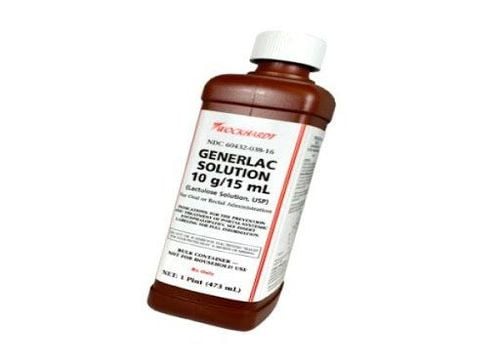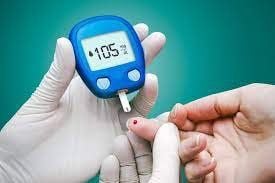This is an automatically translated article.
Portal hypertension is a common condition encountered in many current medical conditions, but patients and family members still do not really care what portal hypertension is? Understanding the importance of this disease as well as knowing the causes of portal hypertension will help to treat portal hypertension more effectively.
1. What is portal hypertension?
Portal hypertension is a disease caused by a gradient of hepatic venous pressure greater than 5 mmHg, often due to cirrhosis of the liver leading to this condition.
The mechanism of portal hypertension is explained through some of the following concepts. Physiologically, arteries in the body keep the function of transporting blood combined with oxygen to organs in the body to supply blood and nourish those organs, while veins are the way to carry blood from organs to organs. heart. In particular, the portal vein will receive the task of bringing blood from organs such as the stomach, pancreas and digestive system to the liver, so when the blood pressure of the portal vein in the liver is high, the body will have increased pressure. Portal vein. Because the liver is one of the most important organs of the human body, it functions as a filter to filter and eliminate waste products from the body. Therefore, portal hypertension will affect many other organs in the patient's body. If not treated promptly, complications of portal hypertension can be extremely serious, including diseases such as esophageal varices, also known as portal hypertension and gastroesophageal reflux disease. hepatic encephalopathy.
Some typical symptoms of portal hypertension are:
Gastrointestinal bleeding Black or bloody stools ascites Ascites: Abnormally enlarged abdominal cavity due to fluid accumulation, this can lead to some accompanying symptoms such as cramping, bloating or even shortness of breath. Enlarged spleen, usually grade IV and V, collateral circulation: Is a condition in which blue veins emerge from around the navel to the chest, or down to the groin, best seen when the patient is sitting Hemorrhoids due to tension around the rectum and dilate.

Tăng áp lực tĩnh mạch cửa thường do bệnh lý xơ gan dẫn đến
2. Causes of portal hypertension
Causes of portal hypertension are diverse, but in that, the most common cause is still cirrhosis. The scars left on the liver by cirrhosis of the liver impair liver function and lead to a rough surface condition in the portal vein, which obstructs blood flow, which can form clots, and as a result. and finally portal hypertension. The cause of cirrhosis is usually due to a number of reasons such as:
Drinking a lot of alcohol and alcoholic beverages should cause liver diseases. Fatty liver is a non-alcoholic cause. Cystic fibrosis The common bile duct in the liver Does not develop an infected liver The body has some reactions to drugs such as Methotrexate In addition, the following factors also contribute to an increased chance of developing portal hypertension:
The mother is sick. hepatitis is transmitted to the baby during childbirth Unhealthy sex and not using contraception Sharing needles with someone with liver disease Tattoos, piercings that are not sterile Body contact with the blood of people with hepatitis

Lạm dụng rượu bia là một trong những nguyên nhân gây tăng áp lực tĩnh mạch cửa
3. Treatment of portal hypertension
Treatment methods for portal hypertension include medical treatment and surgical treatment:
Medical treatment: An important group of drugs in the treatment of portal hypertension are Beta-blockers with function. The ability to reduce blood pressure and dilate veins, restore blood circulation, reduce portal pressure. Some other drugs such as Propranolol and Isosorbide also have a similar function and reduce bleeding inside the body. Besides, you should not use drugs with sodium because it will cause water retention in the body. For medical treatment, intravenous sclerotherapy is also an effective option for patients with mild portal hypertension or with reticular veins.
Surgical treatment: The goal of surgical treatment in the treatment of portal hypertension is to reduce portal pressure, treat complications, treat gastrointestinal bleeding, ascites, and perform liver transplantation. The surgical methods that can be applied to treat portal hypertension are:
Create a bridge between the portal vein and the vena cava by side-to-side, end-to-end or end-to-side anastomosis. bridge between the splenic vein and the microvein, can be peripheral or central Create a bridge between the mesenteric vein and the vena cava If there is too much ascites, no treatment measures can be applied surgery in patients requiring medical treatment. In addition, a number of surgeries can be performed to increase lateral blood circulation, thereby reducing portal pressure, including:
Talma surgery: the goal is to make the peritoneum adhere to the great omentum or kidney adherent to the great omentum. Nylander, Turunen surgery: the goal is to transfer the splenic viscera above the diaphragm Blood reaches the portal vein by:
Splenectomy Ligation of the splenic artery Ligation of the hepatic artery Peter- Womack surgery Vasectomy

Cổ trướng là một trong những biến chứng.
For treatment of complications, a number of surgeries can be applied as follows:
For the treatment of gastroesophageal varices causing bleeding, Crile surgery, Tanner surgery can be applied... For the treatment of ascites, it will be indicated to drain the ascites into the subcutaneous organs, or drain the ascites into the veins of the patient. In addition, the patient will also have a thoracic duct drainage or adrenalectomy. Some patients will be considered for a liver transplant if medical conditions permit, as a radical treatment for portal hypertension.
Treatment of portal hypertension includes many methods, from medical to surgical, with the possibility of complete recovery if this pathology is detected in time. Determining the cause of portal hypertension is also very important, contributing greatly to the effective treatment process.
Vinmec International General Hospital with a system of modern facilities, medical equipment and a team of experts and doctors with many years of experience in examination and treatment, patients can rest assured to visit. and hospital treatment.
To register for examination and treatment at Vinmec International General Hospital, you can contact Vinmec Health System nationwide, or register online HERE.
SEE MORE
Notes in the treatment of cirrhosis in the decompensated stage How dangerous is decompensated cirrhosis? What are the symptoms of cirrhosis of the liver?













